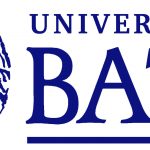If you are unable to secure scholarships or require more financial aid to augment your grant amount, you may be able to finance your education in Canada through student loans. But before you apply, it’s crucial to understand how student loans operate. We’ll walk you through all you need to know about student loans for international students in Canada.
Table of Contents
Federal Student Loans
For international students in need of a repaid loan, the Canadian government offers the Canada Student Loan Program as a federal option. Although Canadian residents are the main recipients of these loans, some international students who have protected status—such as refugees—may be qualified. You can verify your eligibility for a Canada Student Loan on the Government of Canada website.
Private Student Loans
Although certain international students might qualify for a federal student loan from Canada, private lenders are the main source of loans for international students. A private lender is one who is unaffiliated with the state. Generally, in order to be eligible for a private student loan, you need to have a cosigner—someone who will pay back the loan if you are unable to. Nonetheless, international students may be able to qualify for student loans without a cosigner if they are enrolled in certain Canadian universities.
You can view the list of schools in Canada that are approved for loans to find out if you are eligible to apply.
Interest
The portion of a loan that the lender charges the borrower is known as interest. The interest rate is a topic that comes up frequently while talking about student loans. Federal Canada Student Loans have a prime interest rate that is the same as that of borrowers with the best credit scores. The interest rates on private student loans will almost certainly differ from those on federal student loans. Before submitting an application for a student loan, it is imperative to ascertain the interest rate. There are loans with variable interest rates and loans with fixed interest rates.
Variable interest rates are susceptible to fluctuations throughout time, whereas fixed interest rates are unaffected by time. Because they can rest easy knowing that their interest rate won’t fluctuate over the course of the loan, most borrowers choose fixed interest rates. Variable interest rates are a suitable short-term choice, though, because they are generally less expensive than fixed interest rates. If your program is lengthy, you should probably think about a fixed-rate loan; if it’s brief, you might want to think about choices for variable-rate loans.
Repayment
There is a 6-month non-payback period for federal Canada Student Loans following graduation, though repayment will vary depending on the loan plan you select. This implies that you will have six months after your graduation date to begin repaying your student loans. International students may work and attend classes in Canada. Working on campus without a work permit is permitted for full-time students at qualified institutions who hold a study permit.
Furthermore, full-time students may work off campus without a work permit if they are enrolled in an academic, professional, or vocational program at an approved educational institution. This will enable you to finish your studies and make money toward student loan repayment.
We advise you to begin loan repayment as soon as possible if you have the funds available. However, deferral is a flexible option if you are unable to repay your student loans immediately. A student loan deferral, which is contingent upon lender approval, enables you to defer loan repayment. There are numerous ways to repay your debt, yet the lender will always give you a repayment plan.
Frequently Asked Questions about Student Loans for International Students in Canada
Can I apply for a student loan while studying as an international student in Canada?
Yes, protected individuals may be able to apply for federal student loans; however, the majority of federal student loans are only available to citizens of Canada. International students attending universities financed by private lenders have access to private loans.
Are Canadian citizens eligible for these private loans?
Indeed! Use the eligibility tool to see if you qualify for student loans as a Canadian citizen, and then submit an online application.
Will the lender check my credit?
They could. While the majority of lenders usually demand a credit check, some base their decision on the borrower’s potential to eventually repay the loan total.
Do these loans require a cosigner?
No, these loans do not require a cosigner.
How much do I need to study in Canada as an international student?
You’ll need to think about your degree program and the institution you attend. Since the tuition at each institution varies, we are unable to provide a minimal sum. We can provide you with an estimate, though. A single student should be able to afford tuition fees of between $20,000 and CAD 30,000 per year, plus an extra $15,000 CAD for living expenses and other charges. While that may sound like a lot, living and studying in Canada is among the least expensive when compared to other well-known study locations. To obtain a more precise estimation of the overall cost of attendance, it is advisable to schedule an appointment with the financial assistance office at your university.
What should I use the loan money for?
You will need it to pay for other expenses like housing, books, and school supplies, but primarily for tuition.
What permission do I need to study in Canada as an international student?
A valid Canada Study Permit is required for international students. To find out more about your visa, get in contact with the Canadian consulate in your area.
How much money in student loans can international students get?
The lender determines how much you can borrow. Generally speaking, you should only deduct the entire cost of your education plus your living expenses while attending school. If you have access to grants and scholarships in addition to other forms of financial aid, you want to think about taking out fewer loans.
What are the terms of repayment?
Depending on what you and your lender decide, this will happen. Your repayment plan will usually begin six months after your graduation date, and you will probably make no payments at all or very little at that time.
Is it worth it to take out student loans?
It’s critical to evaluate all relevant factors, such as the amount of scholarship money you have received and the amount of financial assistance you will receive from parents, guardians, and other family members. It is imperative that you take into account variables like interest rates and repayment schedules. Generally speaking, we advise that taking out student loans in order to study in Canada may be well worth it if you are certain that you will be able to repay them.
Start With Us
Do you want to study abroad? Note that obtaining a bachelor’s degree or a master’s degree in this field helps to improve your chances in the labor market. Studying abroad is no joke for international students due to the cost. However, you can achieve your dreams without breaking the bank by applying for student loans, which you can pay for as long as 10 years.
MPower Finance and Prodigy Finance are some of the best student loan providers for international students. They also do not require a cosigner or collateral before an application. Reach out to us today, and let’s help you get started.
Read Also:
Canada requires family Ties to approve residency for new foreign workers
10 Reasons Why Your Scholarship Application Was Rejected
How do I make an impact at my school as an international student from a developing country?









